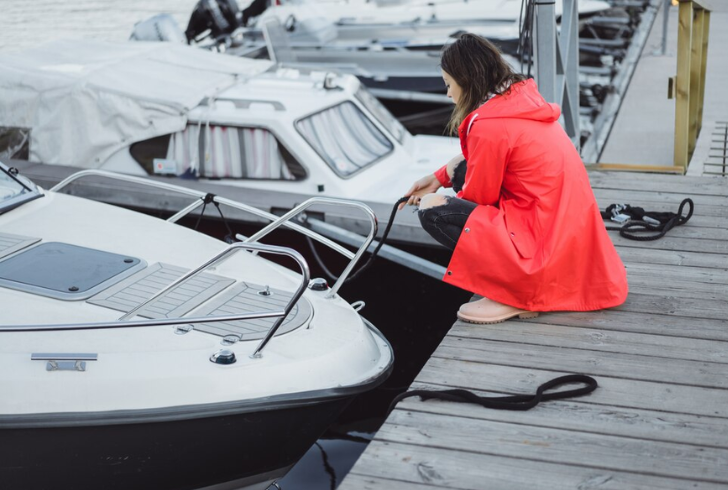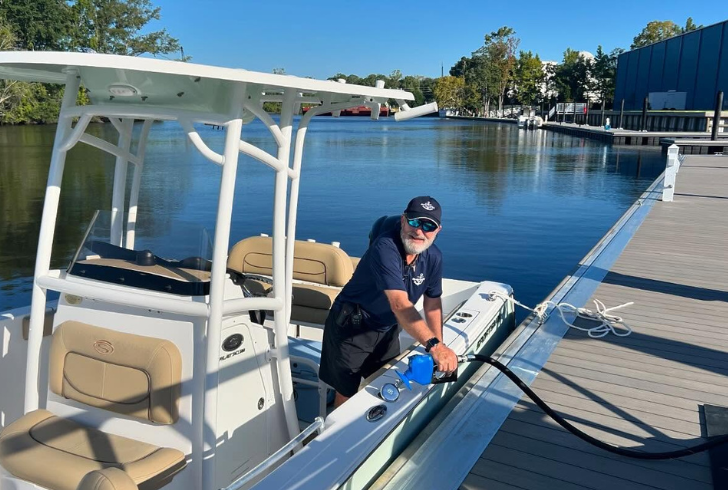Boating is an enjoyable way to spend time on the water, but just like any activity, there are unwritten rules that everyone should follow. Boating etiquette is the key to ensuring a safe, enjoyable experience for everyone on the water—whether you’re out for a leisurely day or pulling a wakeboarder behind your boat.
The rules aren’t just about safety; they’re about respecting others, maintaining a sense of community, and ensuring the water remains a fun space for all.
Key Boating Etiquette to Follow
As with any social activity, there’s an accepted way to behave when boating. Here’s a closer look at some of the key rules you should follow to avoid creating unnecessary disruptions and to maintain harmony among fellow boaters.
1. Respect the Ramp

The ramp is where your journey begins, so it’s important to be mindful of other boaters. Preparing your boat before you get to the ramp ensures that you don’t block others who are ready to launch. Checking your equipment and getting organized while still on the dock helps streamline the process and keeps things moving smoothly.
2. Own Your Wake
Wakes may seem harmless, but they can cause serious disruptions. When your boat creates a large wake, it can pose a risk to others, including swimmers and fishermen. To be courteous, make sure to stay at least 200 feet from the shore or from other boaters. This prevents unnecessary waves from reaching others and maintains a smooth and safe water experience for all.
3. Keep the Music at a Reasonable Volume
When it comes to playing music on your boat, volume is key. Sound tends to travel further across the water, so a loud playlist can quickly become a nuisance. By keeping the volume in check, you’re not just being considerate to those around you, but you’re also making sure that you and your passengers can still communicate clearly, especially when safety is at stake.
4. Clean Up After Yourself
One of the most important yet often overlooked aspects of boating etiquette is caring for the environment. Always pack out everything you bring with you. This includes trash, food wrappers, and any other items that could potentially end up in the water. Maintaining the cleanliness of your surroundings is a simple way to ensure that future generations can enjoy the water as much as you do.
5. Mind the Speed Limits
Every body of water has its own set of rules, including speed limits or no-wake zones. Be sure to familiarize yourself with these restrictions to avoid accidents and ensure a smooth experience for everyone. Going too fast can damage property or cause waves that disrupt other boaters, swimmers, and fishermen.
6. Learn the Rules of Navigation
Just like on the road, boating has its own set of navigation rules to prevent accidents. Knowing which markers to follow, how to avoid collisions, and understanding basic waterway traffic patterns are essential. Familiarizing yourself with these regulations will keep everyone safe and ensure you’re not the cause of an unwanted mishap.
7. Always Be Prepared
Whether you’re the captain or a passenger, safety is key. Before setting off, check that your boat is properly equipped with all necessary safety gear, including life jackets for everyone aboard. It’s your responsibility to make sure everyone follows safety procedures, especially when it comes to wearing life jackets and understanding emergency protocols.
8. Be Efficient at the Fuel Dock

Fuel docks can get crowded quickly, so it’s important to be as quick and efficient as possible when refueling. Fill up your tank and pay your bill, but if you need to buy supplies or make a quick stop, move your boat to a different area to avoid blocking others. This allows the dock to stay clear and accessible for the next boater.
9. Proper Anchoring and Mooring
When anchoring or tying up your boat, be mindful of how you do it. Enter the area slowly to avoid creating a wake that could disturb other boats. Additionally, when anchoring, give enough space between your boat and others, especially in busy mooring areas. The first boat in an area sets the tone, so be respectful of how they’ve docked or anchored.
10. A Friendly Wave Goes a Long Way
When passing another boat, it’s always polite to give a friendly wave. Boating is about sharing the water, so acknowledging fellow boaters is a simple way to foster a sense of community. A quick wave can go a long way in maintaining a friendly atmosphere on the water.

